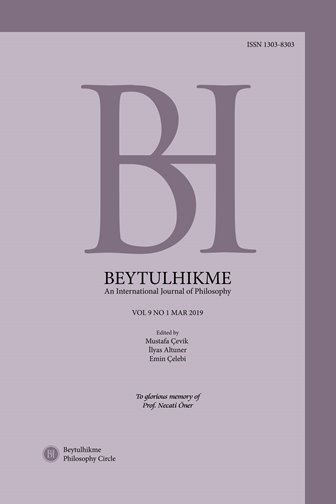Author :
Abstract
Bu çalışmada Platon’un Kriton adlı eseri retorik analizi yöntemiyle analiz edilir. Platon’un Kriton adlı eseri politika felsefesinin “kanon”u arasında yer alan en önemli eserlerden biridir. Bu eserinde Platon, kendi politika felsefesinin başlıca niteliklerini geliştirir. Sokrates’in her zaman bağlı kaldığı ahlaki prensipleri zayıflatmamak için, mahkûm olduğu idam cezasından kaçmamayı tercih etmesinden ilham alan Platon, ödev, yurttaşlık ve adalet kavramlarını ele alır. Bu sayede ideal bir “polis”in ve yurttaşın hangi niteliklere sahip olmaları gerektiğine dair felsefi kavrayışını geliştirir. Platon’un tüm felsefe tarihi üzerindeki etkisi ve belirleyiciliği dikkate alındığında, Kriton’un yeni analiz metotlarıyla yeniden değerlendirilmesi zaruret arz etmektedir. Bu anlamda, Platon’un idealize ettiği bir devleti tesis etmek amacıyla eserlerini biçimlendirdiği dikkate alınacak olursa, yazarın amaçlarından hareketle inceleme nesnesini ele alan retorik analizi metoduyla Kriton’un incelenmesi önemlidir.
Keywords
Abstract
This study analyses Plato’s work Crito with the rhetoric analysis method. Plato’s work Crito is one of his most important works of political philosophy. In this work, Plato develops the key qualities of his own political philosophy. Inspired by the fact that Socrates does not escape the capital punishment, he is sentenced in order not to undermine the ethical principles to which he always adheres, Plato handles duty, citizenship and justice concepts. Thus, he develops his philosophical understanding of what qualifications a “polis” or a citizen should have. Considering Plato’s influence and decisiveness on all history of philosophy, Crito needs to be re-analyzed with new analysis methods. In this context, considering that Plato created his works in order to establish a state that he idealized, Crito needs to be analyzed with rhetoric analysis method which handles the analyzed subject based on the purpose of the author.
Keywords
- Aristotle (1959). Politics. (Trans. H. Rackham). London: William Heinemann Ltd.
- Huard, R. (2007). Plato’s Political Philosophy: The Cave. New York: Algora Publish- ing.
- Likhovski, A. (1997). "Tyranny" in Nineteenth-Century American Legal Dis- course: A Rhetorical Analysis. The Journal of Interdisciplinary History, 28 (2), 205-223.
- Logan, M. (1978). Rhetorical Analysis: Towards a Tropology of Reading. New Literary History, 9 (3), 619-625.
- Plato (1997). Complete Works. (Ed. J. M. Cooper). Indianapolis: Hackett Publishing Company.
- Russell, D. C. (2005). Plato on Pleasure and the Good Life. New York: Oxford Uni- versity Press.
- Weiss, R. (1998). Socrates Dissatisfied: An Analysis of Plato's 'Crito'. New York & Oxford: Oxford University Press. Öz: Bu çalışmada Platon’un Kriton adlı eseri retorik analizi yöntemiyle analiz edilir. Platon’un Kriton adlı eseri politika felsefesinin “kanon”u arasında yer alan en önemli eserlerden biridir. Bu eserinde Platon, kendi politika felsefesinin başlıca niteliklerini geliştirir. Sokrates’in her zaman bağlı kaldığı ahlaki prensipleri zayıflatmamak için, mahkûm olduğu idam cezasından kaçmamayı tercih etmesinden ilham alan Platon, ödev, yurttaşlık ve adalet kavramlarını ele alır. Bu sayede ideal bir “polis”in ve yurttaşın hangi niteliklere sahip olmaları gerektiğine dair felsefi kavrayışını geliştirir. Platon’un tüm felsefe tarihi üzerindeki etkisi ve belirleyiciliği dikkate alındığında, Kriton’un yeni analiz metotlarıyla yeniden değerlendirilmesi zaruret arz etmektedir. Bu anlamda, Platon’un idealize ettiği bir devleti tesis etmek amacıyla eserlerini biçimlendirdiği dikkate alınacak olursa, yazarın amaçlarından hareketle inceleme nesnesini ele alan retorik analizi metoduyla Kriton’un incelenmesi önemlidir. Anahtar Kelimeler: Kriton, polis, ödev, yurttaşlık, doğruluk.





